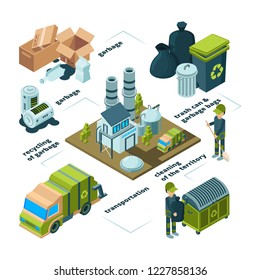Learn How To Choose The Optimal Dumpster Size For Your Job To Maximize Performance And Minimize Prices With This Thorough Overview
Learn How To Choose The Optimal Dumpster Size For Your Job To Maximize Performance And Minimize Prices With This Thorough Overview
Blog Article
Published By-Romero Berger
When embarking on a project that requires a dumpster, the dimension you choose can substantially impact its efficiency and cost-effectiveness. Picture having the ideal container that fits all your waste without being excessively large or too small. It all starts with understanding the nuances of your task and choosing a dumpster dimension that lines up with your particular demands. So, prior to you choose, think about the factors at play to make certain a seamless waste management procedure from beginning to end.
Variables to Take into consideration
When choosing the appropriate dumpster size, there are a number of key factors to think about.
First, consider the sort of waste you'll be taking care of. Various products might require differing quantities of room, so recognizing what you'll be placing in the dumpster is important.
Next off, evaluate the amount of waste you anticipate to generate. If you take too lightly the quantity, you might need to make multiple journeys to throw away every little thing, which can be inconvenient and pricey. On the other hand, leasing a dumpster that's as well big can result in unnecessary expenditures.
Furthermore, consider the area where the dumpster will certainly be put. Make certain there's enough room for the dumpster to be provided and gotten with no obstructions.
Lastly, think of any weight constraints that might use. Surpassing the weight limit can result in extra charges or perhaps the refusal of service.
Dumpster Size Choices
For picking the appropriate dumpster dimension, it's necessary to have a mutual understanding of the available choices. Dumpster sizes normally range from 10 to 40 cubic lawns, with variations in between.
A 10-yard dumpster is suitable for little jobs like a garage cleanout or a little improvement. If you're dealing with a medium-sized job such as a kitchen area remodel or a basement cleanout, a 20-yard dumpster could be the right selection.
For larger projects like a whole-house improvement or commercial building, a 30 or 40-yard dumpster could be preferable to accommodate the quantity of waste produced.
When deciding on a dumpster size, take into consideration the quantity and sort of particles you anticipate to take care of. It's much better to choose a slightly bigger size if you're not sure to prevent overfilling. Bear in mind, it's more cost-efficient to rent a dumpster that fits your demands instead of having to get an additional one.
Matching Size to Project
Ideally matching the dumpster dimension to your job is important for effective waste monitoring. To identify the right dimension, consider the scope and nature of your job.
For tiny home cleanouts or renovations, a 10-yard dumpster may be adequate. These are normally 12 feet long and can hold around 4 pickup lots of waste.
For bigger tasks like redesigning numerous spaces or removing a big estate, a 20-yard dumpster could be better. These are around 22 feet long and can hold roughly 8 pickup truck loads.
If 9 yard dumpster taking on a significant building and construction task or industrial improvement, a 30-yard dumpster could be the best fit. garbage collection service have to do with 22 feet long and can fit about 12 pickup tons of particles.
Matching the dumpster dimension to your job guarantees you have enough room for all waste products without overpaying for unused capability.
Verdict
In conclusion, picking the appropriate dumpster dimension for your task is important for effective waste disposal. By considering aspects like the type and amount of waste, space accessibility, weight restrictions, and budget restrictions, you can guarantee you have the suitable dimension dumpster for your requirements. Make certain to match the size of the dumpster to the scope and nature of your job to prevent overspending on unnecessary expenses.
